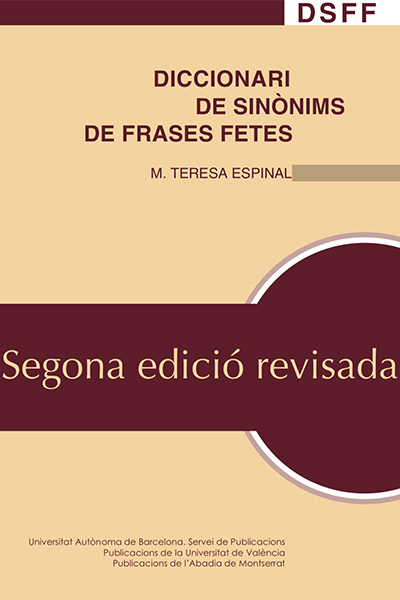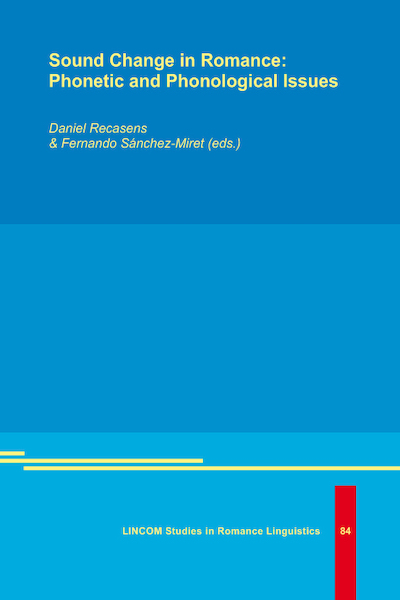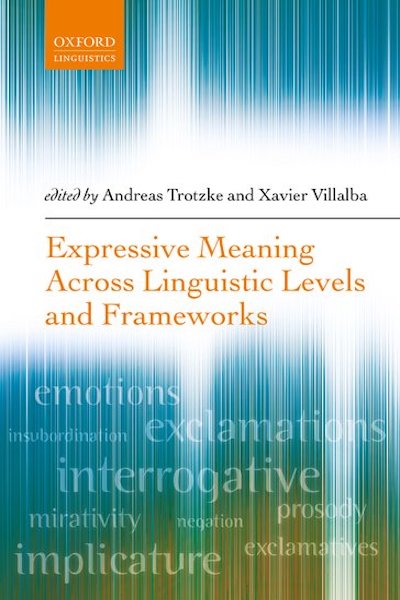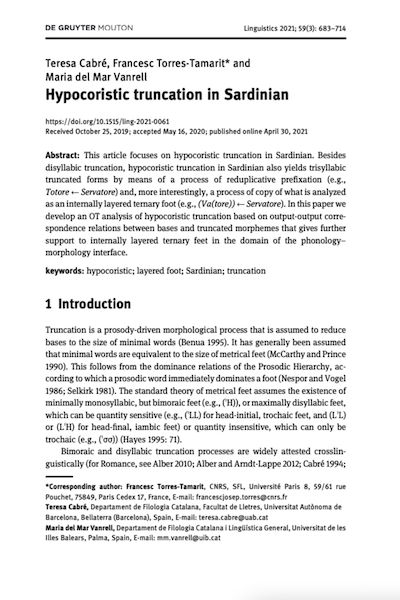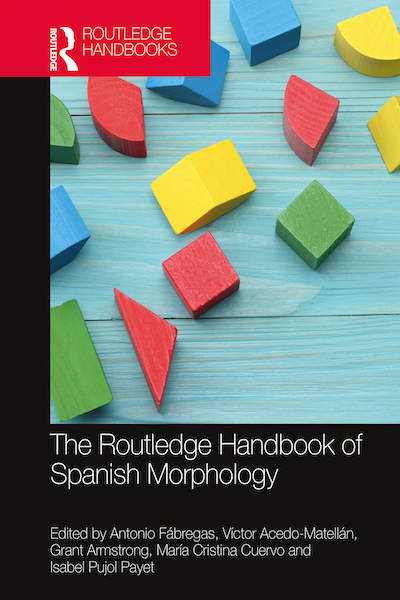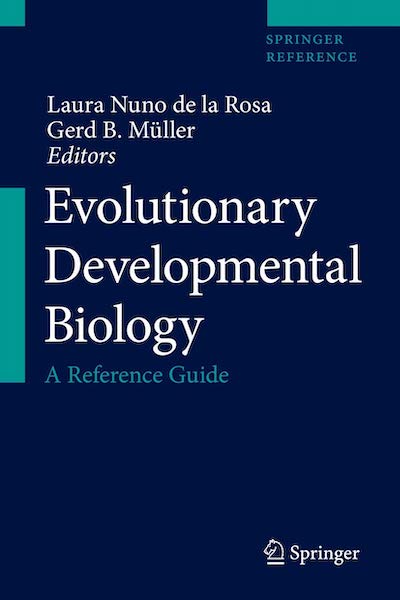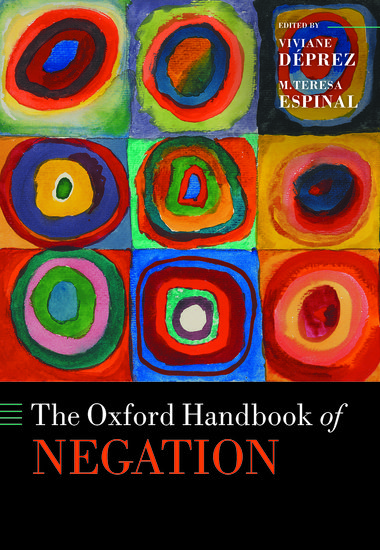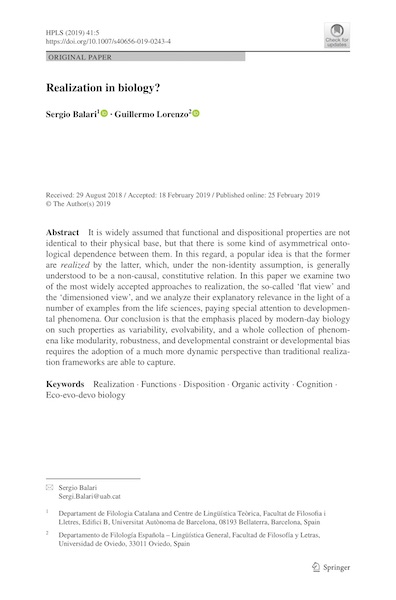
Autors:
Sergio Balari, Guillermo LorenzoTítol:
Realization in biology?Editorial: Springer
Col·lecció: History and Philosophy of the Life Sciences #41:5
Data de publicació: 2019
Pàgines: 27
Més informació
Text complet
It is widely assumed that functional and dispositional properties are not identical to their physical base, but that there is some kind of asymmetrical ontological dependence between them. In this regard, a popular idea is that the former are realized by the latter, which, under the non-identity assumption, is generally understood to be a non-causal, constitutive relation. In this paper we examine two of the most widely accepted approaches to realization, the so-called ‘flat view’ and the ‘dimensioned view’, and we analyze their explanatory relevance in the light of a number of examples from the life sciences, paying special attention to developmental phenomena. Our conclusion is that the emphasis placed by modern-day biology on such properties as variability, evolvability, and a whole collection of phenomena like modularity, robustness, and developmental constraint or developmental bias requires the adoption of a much more dynamic perspective than traditional realization frameworks are able to capture.

